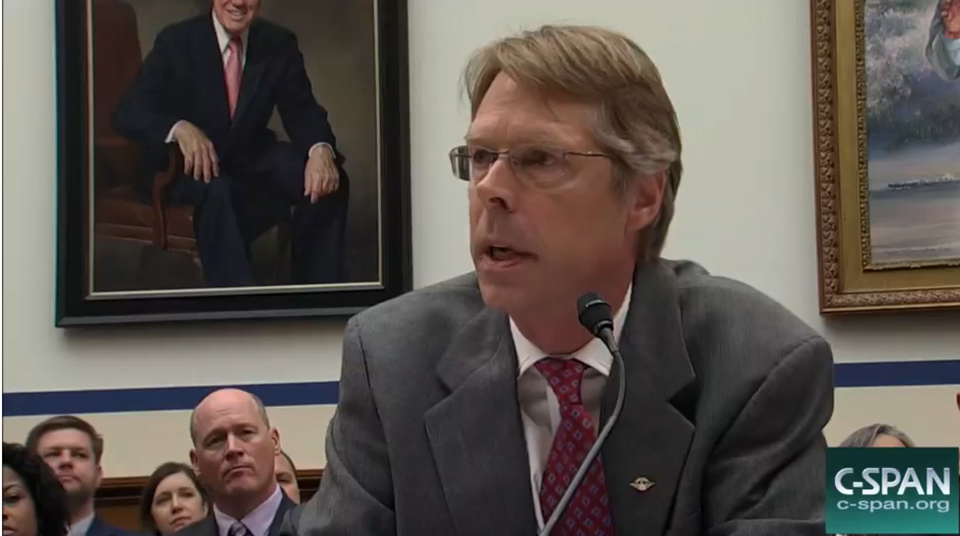EAA Board Member to House Committee: ATC Privatization Proposal ‘Deeply Troubling’
May 17, 2017 - EAA board member Joe Brown, president of Hartzell Propeller and chief operating officer of Tailwind Technologies, testified Wednesday before the House Transportation and Infrastructure Committee on the ramifications of privatizing the nation’s air traffic operations. Brown was among several aviation-related officials invited to testify at the hearing in Washington, D.C.
Brown noted that he had a unique perspective, as he is involved with the air traffic control system as a GA pilot, aviation businessman, and citizen. In his testimony, he noted the ease, efficiency, and safety of the U.S. air traffic control system despite handling many times more traffic than any other country. He also disagreed that ATC privatization would benefit the system, calling a privatization proposal “deeply troubling” because of how the governing entity would be organized, the transition time to a new system, and the overall cost and unknown benefits of such a massive change.
“Are the public interests better served if Congress gives our wealth and skies to a small group of special interests, operating outside of democratic oversight, so that they can serve their own ends?” asked Brown, alluding to a proposal to form an independent board, dominated by airline interests, that would operate the national air system. “Fundamentally, can this cooperative of special interests guarantee that it is capable of running the safest, busiest, and most complex airspace in the world, while simultaneously and radically increasing the pace and impact of modernization, while also assuring the American people that it will, first and foremost, serve the public good? The answer is, it can’t.”
Brown also testified that the ATC privatization proposal has high risk and uncertain rewards. It would also be “too big to fail” from its first day of operation, potentially needing the taxpayer to bail it out in case of economic shortfall. He called for building on the FAA air traffic organization’s considerable strengths to mend its weaknesses, especially pointing to the recommendations of FAA Management Advisory Council.
In addition, Brown noted that while some have pointed to the Canadian Nav Canada system as a prototype solution, that system and similar ones do not embark on large modernization efforts or conduct extensive research and development. Any transition to a privatized system would need at least five to seven years to complete, with a questionable cost-benefit result.
“I believe it is imprudent to take five to seven years to, at best, get the same car with a new paint job while also delaying progress on modernization and other pressing priorities we face right now,” Brown said.
Brown’s testimony comes in the same week the FAA Managers Association announced it would oppose any proposal to spin air traffic control operations away from the agency into a nonprofit corporation.
Watch the archived C-SPAN video below.

